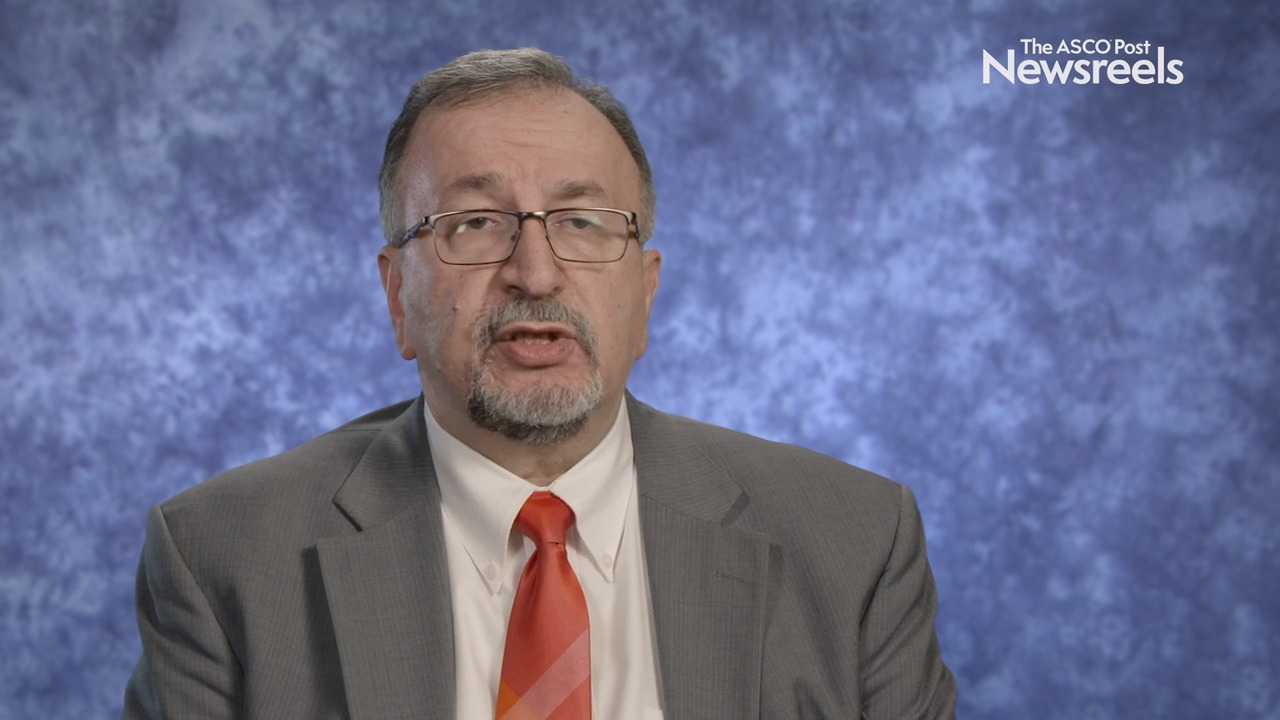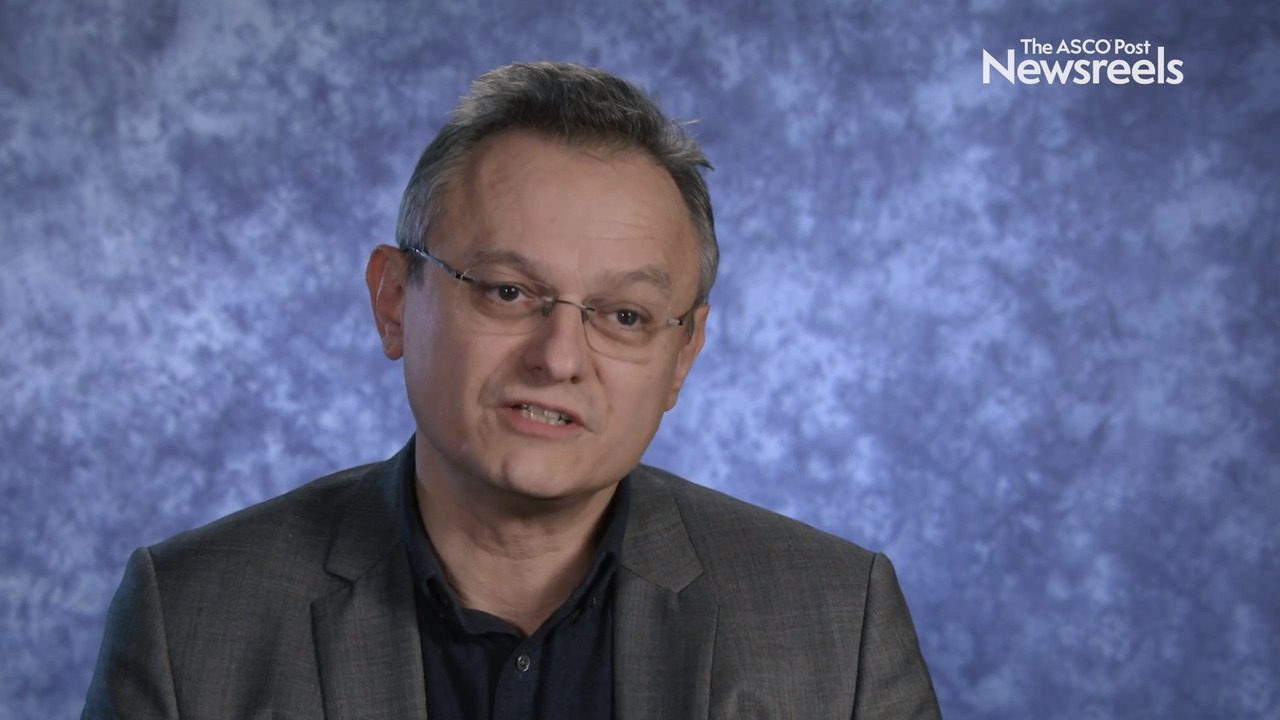Thibaud Kössler, MD, PhD, on Localized Rectal Cancer: Neoadjuvant Pembrolizumab and Radiotherapy
2020 Gastrointestinal Cancers Symposium
Thibaud Kössler, MD, PhD, of Geneva University Hospital, discusses the first trial to study the efficacy and safety of anti–PD-1 immunotherapy plus short-course radiotherapy in localized microsatellite-stable rectal cancer. The study explores whether a gene signature can predict sensitivity to immunotherapy (Abstract TPS272).
Van K. Morris, MD, of The University of Texas MD Anderson Cancer Center, discusses the COBRA study, which is examining circulating tumor DNA and its ability to predict whether patients with resected stage IIA colon cancer may benefit from adjuvant chemotherapy (Abstract TPS261).
Eyal Meiri, MD, of the Cancer Treatment Centers of America at Southeastern Regional Medical Center, discusses his findings on heavily pretreated patients with colorectal cancer with high tumor mutational burden. Monotherapy with pembrolizumab showed antitumor activity, which merits further study to confirm efficacy (Abstract 133).
Peter R. Galle, MD, of the University Medical Center, Mainz, discusses patient-reported outcomes from this phase III study, which showed the combination of atezolizumab plus bevacizumab vs sorafenib is well tolerated and may represent a new standard of care in the first-line setting for unresectable liver cancer (Abstract 476).
Eileen M. O’Reilly, MD, of Memorial Sloan Kettering Cancer Center, discusses phase II trial findings showing that cisplatin and gemcitabine, with or without veliparib, exceeded a prespecified response rate for patients with pancreatic adenocarcinoma and a germline BRCA/PALB2 mutation (Abstract 639).
Franck Pagès, MD, PhD, of the Hôpital Européen Georges Pompidou, discusses study findings from the prospective IDEA France cohort study of patients with stage III colon cancer treated with mFOLFOX6. The study showed that patients with an intermediate or high Immunoscore seemed to benefit from 6 months of mFOLFOX6 treatment compared with 3 months (Abstract 10).





